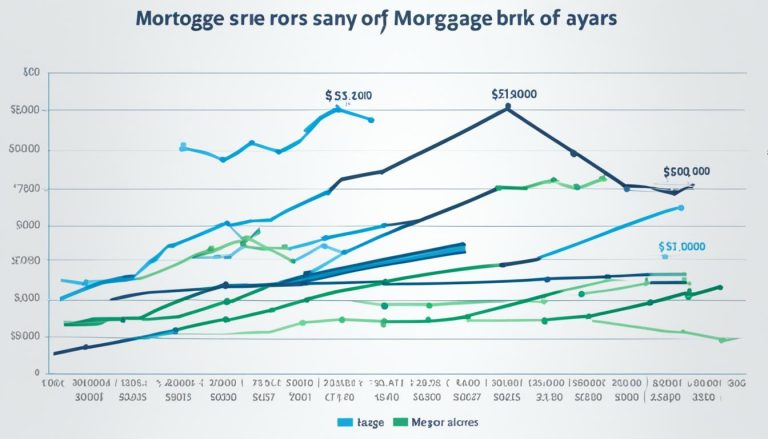Welcome to Unlock Home Wealth, your guide to understanding equity release mortgages in the UK. If you’re a retiree looking to unlock the wealth tied up in your home, an equity release mortgage could be the solution you’ve been searching for. Let’s explore what equity release is and how it can provide mortgage options for retirees like you.
What is an Equity Release Mortgage?
Equity release refers to a range of products that allow homeowners who are older to access the cash tied up in their homes. With an equity release mortgage, you can choose to receive a lump sum payment or smaller payments over time, giving you the flexibility to meet your financial needs. Whether you’re planning a dream retirement, funding home improvements, or helping loved ones, equity release can empower you to make the most of your home’s value.
There are two main types of equity release options to consider: lifetime mortgages and home reversion plans. Our aim is to help you understand both options so that you can make an informed decision that suits your unique circumstances.
Understanding Lifetime Mortgages
Lifetime mortgages are the most common type of equity release. With a lifetime mortgage, you take out a loan secured against your property while retaining ownership. This type of equity release allows you to access the wealth tied up in your home, providing you with a financial solution in your retirement years without the need to sell your property.
So, how does equity release work? Well, with a lifetime mortgage, you can receive a lump sum payment or smaller payments over time, depending on your preference and financial needs. The loan amount, plus any interest, is repaid when you sell the property or move into long-term care.
One of the advantages of a lifetime mortgage is the flexibility it offers. There are different options available, allowing you to choose the option that best suits your circumstances. You may have the choice to make repayments, which can help manage the interest and prevent the loan from growing. Alternatively, you can let the interest roll-up, meaning the loan amount will increase over time, but no monthly repayments will be required.
When considering equity release, it’s crucial to explore the available options to find the best equity release deals that suit your individual needs. Comparing different lenders and products can help you find competitive interest rates, flexible repayment options, and additional features that align with your goals.

Exploring Home Reversion Plans
When considering ways to release equity in your property, one option to explore is a home reversion scheme. This scheme involves selling part or all of your home to a home reversion provider in exchange for a lump sum or regular payments. It provides an opportunity to access the value of your property while still allowing you to continue living in it until you either pass away or move into long-term care.
With a home reversion plan, the percentage of the property you retain will always remain the same, regardless of any fluctuations in property values. This can provide peace of mind, as you know exactly how much of your property’s value you will continue to own.
However, it’s important to carefully consider the impact of home reversion on your inheritance and future plans. Selling a portion of your home reduces the value that can be passed on as an inheritance. Additionally, it’s crucial to seek equity release advice from a professional financial adviser who specializes in these schemes. They can provide tailored guidance based on your individual circumstances and help you navigate the various options available to you.
Benefits of Home Reversion Plans:
- Opportunity to access a lump sum or regular payments
- Retain the right to continue living in your home
- Percentage of property retained remains the same
- Flexible options available to suit your needs
Considerations for Home Reversion:
- Impact on inheritance and future plans
- Evaluation of associated fees and costs
- Reviewing the terms and conditions of the scheme
- Independent equity release advice is essential
By thoroughly exploring home reversion plans and seeking professional advice, you can make an informed decision about whether this type of equity release option is right for you and your financial goals.

Things to Consider about Equity Release
Before deciding if equity release is the right option for you, it’s important to consider the potential drawbacks. Equity release can be more expensive compared to traditional mortgages, and the interest can compound quickly over time. It’s also important to consider the impact on your inheritance and eligibility for state benefits. Additionally, there are fees involved in arranging equity release, such as arrangement fees and solicitor fees.
One helpful tool in evaluating whether equity release is suitable for your circumstances is an equity release calculator. This online tool provides an estimate of the amount you can release from your property and the associated costs. By entering details about your home’s value and your age, you can get an idea of the available options and their financial implications.
When considering equity release options, it’s crucial to be aware of the different equity release scheme options. These include lifetime mortgages and home reversion plans, each with their own advantages and disadvantages. Researching and understanding the features of each scheme is essential to making an informed decision.
4 Little Known Truths about Equity Release
- Equity release is regulated by the Financial Conduct Authority (FCA) to protect homeowners. This regulatory oversight helps ensure that you receive fair treatment and are provided with the necessary information to make an informed decision.
- Releasing equity from your home through an equity release scheme does not require you to move out. You can continue living in your property for the rest of your life or until you move into long-term care.
- If you choose a lifetime mortgage, you have the option to make repayments on the loan or let the interest roll-up. This flexibility allows you to tailor your repayment strategy according to your financial situation and preferences.
- Equity release can have an impact on your inheritance planning. It’s important to consider how releasing equity from your home may affect the value of your estate and any potential inheritance for your loved ones.
By considering these truths, using an equity release calculator, and exploring the different scheme options, you can make an informed decision about whether equity release is the right choice for you.
Is Equity Release Right for You?
Deciding whether equity release is the right option for you requires careful consideration of several factors. These factors include your age, income, desired amount of money to release, and future plans. By evaluating these aspects, you can make an informed decision about your financial future.
It is highly recommended to seek guidance from an independent financial adviser who specializes in equity release. This professional can assess your individual circumstances and provide valuable insights and advice. They can help you understand the eligibility criteria for equity release and explore alternative options that may better suit your needs.
Equity release eligibility is often determined by age. Most schemes require you to be at least 55 years old and own a property that meets specific requirements. The amount of money you can release is dependent on the value of your home, with some providers offering up to 60% of the property’s value. Your income and credit history may also be taken into consideration.
Releasing money from your home can be a significant financial decision. It’s crucial to understand the potential impact on your inheritance and any entitlement to means-tested benefits. Equity release can reduce the value of your estate and may affect your ability to pass on assets to your loved ones. Consulting with a financial adviser can help you navigate these considerations and ensure you make an informed choice.
Advantages of Equity Release
- Access to tax-free funds
- Opportunity to enjoy your retirement years without financial stress
- Flexibility in how you use the released funds
- No monthly repayments required
Disadvantages of Equity Release
- Accrued interest can significantly reduce the value of your estate
- Potential impact on inheritance
- Limited options for moving or downsizing in the future
Considering Alternative Options
Before committing to equity release, it’s important to explore alternative options that may better suit your financial goals. Some alternatives to consider include downsizing to a smaller property, utilizing other savings or investments, or seeking financial support from family members. A financial adviser can help assess these options and guide you towards the most suitable choice for your circumstances.
Remember, equity release is a significant financial decision that should be made with careful consideration and professional advice. By understanding the eligibility criteria, weighing the advantages and disadvantages, and exploring alternative options, you can make an informed choice that aligns with your financial goals.

| Advantages | Disadvantages |
|---|---|
| Access to tax-free funds | Accrued interest can significantly reduce the value of your estate |
| Opportunity to enjoy your retirement years without financial stress | Potential impact on inheritance |
| Flexibility in how you use the released funds | Limited options for moving or downsizing in the future |
| No monthly repayments required |
Conclusion
Equity release can offer a viable solution for retirees looking to access the wealth tied up in their homes. By embracing equity release, individuals can unlock financial potential and achieve a more comfortable retirement. However, it is crucial to approach this decision with careful consideration of the advantages, disadvantages, and potential risks involved.
Before committing to equity release, it is highly advisable to seek professional advice from a qualified financial adviser. These experts specialize in equity release and can provide tailored guidance based on your unique circumstances. Taking this step ensures that you make an informed decision that aligns with your financial goals and retirement plans.
To determine whether equity release is right for you, evaluate your current situation and future aspirations. Reflect on factors such as your age, income, desired amount of released funds, and inheritance plans. By engaging in an open dialogue with a financial adviser, you can explore alternative options and assess if equity release is the most suitable path for you.






